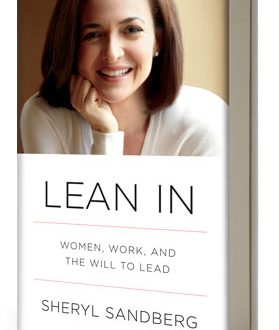
Purity Culture: A Corrective (in Two Parts)
Part 1: The Context
Purity is good. Purity culture, not so much.
Purity culture isn’t new. And it’s global. While a young son may live the wild life, family honor depends on the daughter’s virginity. People tend to connect worth and worthiness with a woman’s sexual purity. Muslim, Hindu, Christian, atheism. Name your major belief system, and you’ll find purity-culture elements manifested in its subcultures.
In the US, purity culture reveals itself differently in different geographical areas and ethnic groups. But in the past few decades it has had a deep hold on the evangelical church. Especially the white evangelical church. Women of color already had their own unique challenges.
In Righteous Discontent: The Women’s Movement in the Black Baptist Church 1880–1920, Evelyn Brooks Higginbotham writes, “Black women were already motivated by their Christian faith to instill virtue in their children, but the ‘politics of respectability’—the need to look respectable in the eyes of White people—drove them even harder to be virtuous.” In Asian communities, one expert explained, “women have a transcontinental history of being hypersexualized and fetishized.” So, as one person put it, white women must fight to retain their purity while women of color are perceived as needing to attain it.
In its current iteration in the US, (mostly white) Christians who grew up during the Sexual Revolution became parents. And in the 1990s when their kids hit the teen years, these moms and dads faced parenting at a time when AIDS was the number-one cause of death for men ages 25–44. Meanwhile, the average number of premarital sex partners in the US had skyrocketed since the 1970s, when only 2 percent of women had more than ten partners before marriage. By the 1990s, that rate was 10 percent. And the teen pregnancy rate had reached an all-time high.
Parents and ministry leaders looked at these statistics with valid concerns as they read the words of the apostle Paul to a sex-saturated church in Corinth: “This is the will of God: your sanctification, that you should avoid sexual immorality; that each of you should learn to control your own body in a way that is holy and honorable, not in passionate lust like the pagans, who do not know God; and that in this matter no one should wrong or take advantage of a brother or sister. The Lord will punish all those who commit such sins, as we told you and warned you before. For God did not call us to be impure, but to live a holy life. Therefore, anyone who rejects this instruction does not reject a human being but God, the very God who gives you his Holy Spirit (1 Thess 4:3–8).
Evangelical parents and ministry workers concerned about sex outside of marriage and its ramifications, needed resources for teaching the Bible’s sexual ethic to teens. So in 1992, a youth ministry consultant in a brainstorming session for a potential Christian sex-ed campaign presented the theme of “True Love Waits.”
The publisher embraced the idea and set a goal to have 100,000 signed commitment cards (or purity pledges) from teens by the time of the next annual convention. In 1994, when “True Love Waits” held a rally in Washington DC, twenty-five thousand youth attended, and the campaign displayed 210,000 commitment cards on the National Mall. The campaign came with a full line of products. These included pledge rings and pledge certificates that said, “Believing that true love waits, I make a commitment to God, myself, my family, those I date, and my future mate to be sexually pure until the day I enter marriage.” T-shirts said, “True Love Waits” and “Modest Is Hottest.” Bible studies, leaders’ guides, and video series served as resources for “pledge retreats,” conferences, and ceremonies. Churches held father-daughter purity balls—formal dance events that promoted virginity until marriage for teen girls. Fathers often signed pledges to be examples of purity and model integrity for their daughters.
There was also a book. About four years in to “True Love Waits” as a movement, Josh Harris (who no longer identifies as Christian) published I Kissed Dating Goodbye. In it he promoted abstinence and popularized courting as an alternative to dating. This work sold more than a million copies and became the primary text of the movement. By this time “True Love Waits” was embedded deeply into pop culture, as Jessica Simpson, Britney Spears, Miley Cyrus, Demi Lovato, Selena Gomez and the Jonas Brothers participated. And their identification with the movement helped record sales, because some parents perceived these performers as “safe.”
With this unique brand of abstinence teaching often came a big implied promise: If you save yourself for marriage, God will bless you with a mind-blowing sex life.
As one female seminary student told me, “In that light, it [wasn’t and] isn’t much different from many of the other prosperity gospels preached in a pursuit of power.”
Next time, we’ll explore a better way….




